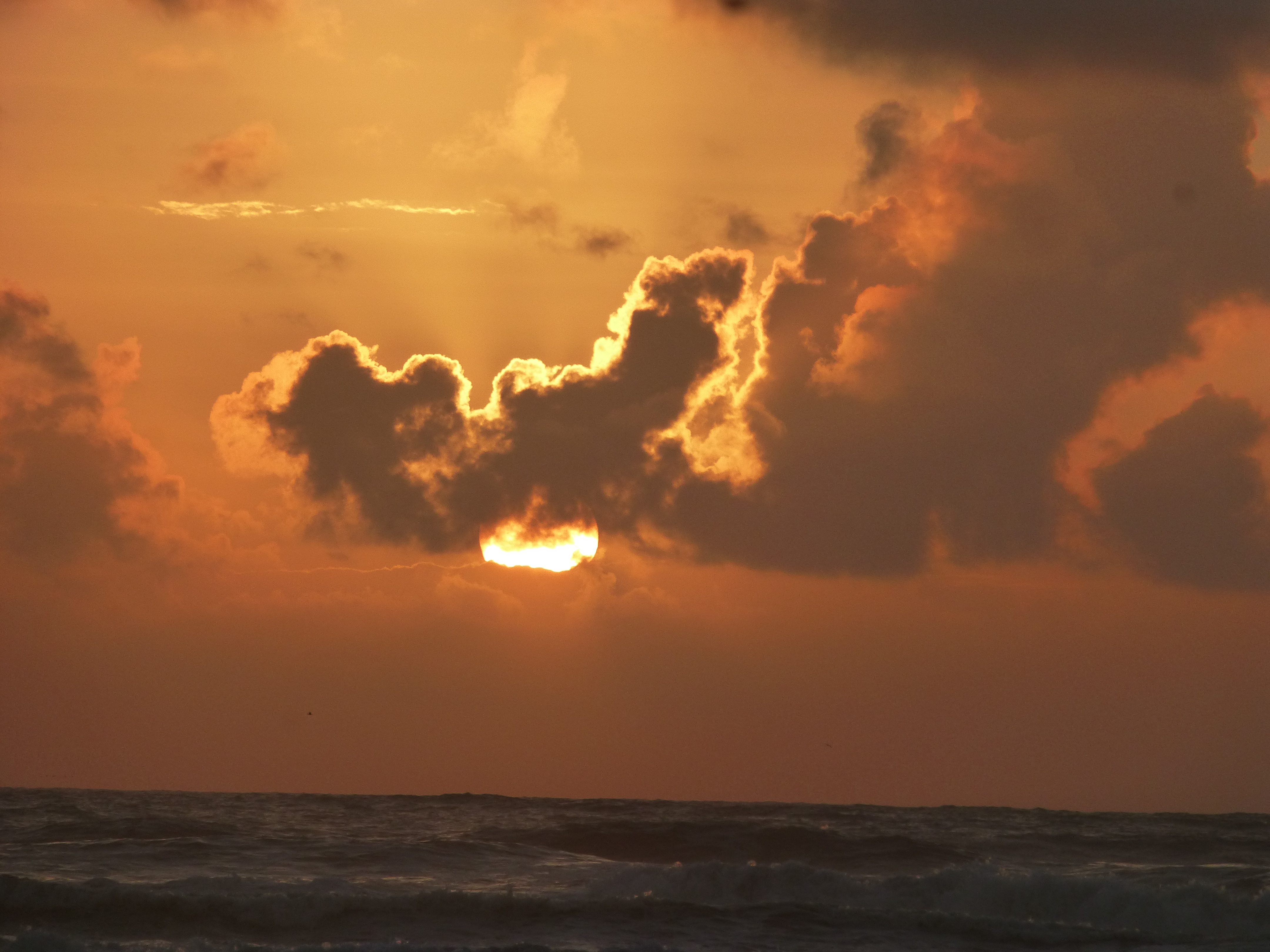By Madronna Holden
“What is it you want to do with the time you have left on this planet?”
— Bernice Johnson Reagon
As we celebrate Martin Luther King this January of 2015, we will do well to remember the elders who have dedicated their lives to ensuring justice and democracy– such as Bernice Johnson Reagon, a self-defined “songtalker”– whose life models hope and vision.
Bernice Johnson Reagon, professor emeritus at American University, curator emeritus at the Smithsonian’s National Museum of American History and founder of the acclaimed a cappella group Sweet Honey in the Rock, was an original member of the Student Non-Violent Coordinating Committee’s Freedom Singers in 1962. She sang in jail and she sang in marches where she and her friends traded off leadership to share the risk of the violence levied against them.
When Civil Rights protesters were faced with such violence, the Freedom Singers continued to sing, affirming their purpose as expressed in Sweet Honey’s, “Stand”, with its refrain: “We will not bow down (to racism, to exploitation)”.
Today, as an elder who sees it as her responsibility to encourage visionary leaders of the next generation, Reagon travels the country speaking as she did at the University of Oregon last year. She begins her talks with a song, inviting her audience to sing along in their own harmonies.
In her words, “We always sing in harmony. We may not know the tune, but we always join in”. Of course, there are conditions to that: one must sing softly enough at first to hear what others are singing. Listening is key: ceding space to one another, as Ella Barker did for decades in her NAACP leadership, working behind the scenes to locate future leaders. Her vision was strong enough that the leaders she mentored were in place ten and twenty years down the line.
Barker is the heroine of Sweet Honey’s “Ella’s Song”, whose chorus insists “We who believe in freedom will not rest until it comes”.
For Reagon singing is an expression of personal power, a gathering of courage—and a “grounding in place”. “It’s something about cleansing or preparing the air. I was born amidst singing. I don’t know of breathing or eating without singing. Like walking and talking, like the air you breathe, it was woven inside you, the house you grew up in, the yard you played in, the school you went to, the church you went to.”
Each of us has our individual voice, but we do not have to begin all over again as we sing our songs, Reagon tell us, listing the influences that stood behind her. We have history to inspire us, an inherited song to carry on. This is how the long term strategy for change works, as it did in her community. At the turn of the century black leaders who protested against lynching located other leaders who emerged in the 1940s—and they in turned located the leaders who emerged in the Civil Rights Movement of the 1950s.
Even so, public action was often difficult to learn for those who had been told for generations, do not stand out, and especially do not call attention to yourself with respect to the police. But for change to take place, Reagon says, you must be willing to become “outlaws” with respect to the disorder of an unjust system so as to enact an alternative vision– such as the vision Reagon and other veterans of the Civil Rights movement outlined this fall (2012) in the face of what they saw as the “hijacking” of the US government by greed through the “citizens united” Supreme Court Decision.
They re-gathered at the historical site of lunch counter sit-ins in Greensboro, North Carolina. There they drew up the Greensboro Declaration, stating their vision of the current disorder and the alternatives they vowed to struggle for in support of the generations to follow. They invite each of us to sign on to the Declaration—as we enact and re-vision it in our own terms, according to the rules of community harmony that Reagon learned with song.
Reagon cautions that those around you “will not always love you for…speaking out against the disorder”. Even those who are part of your community, for whom you act on behalf of justice, may speak against you. Some of those who spoke against her came back to offer their friendship twenty years later. But there was a lonely time in between.
Still, “if you are true to yourself, you will always have yourself as company.”
As a student, nonviolence was a hard lesson for Reagon to learn, given the violence levied against herself and other civil rights workers. But non-violence was a “long-term survival strategy”, fully in line with the long term strategy of locating inter-generational leadership. It took her years to really learn that lesson. “It’s not l-o-v-e. It’s saying ‘Good morning’ to somebody. It’s you saying, ‘I don’t know what they’re going through, but I’m going to say a little prayer for them.’ ”
There was fear for their lives felt by those involved in the Civil Rights protests, but there was exhilaration too, wonder at what a community could do, working together. A dramatic moment that stays with Reagon today is the effectiveness of the bus strike in protest of segregation. She remembers her awe at seeing the buses going by one after another, emptied of their riders. It was a profound statement of how powerful community action could be.
Whatever we choose to do to take our stand against the “disorder”, Reagon also warns us, we can be sure we will do many things wrong. The important part is not to look for perfection, but to begin—to take that step affirming our personal vision in seeing the world clearly.
And we should be aware of the long term vision. Though we may not be here when the changes our actions prepared for finally come, we will have started the necessary process that made something better possible.
In her own life, there was a time when the “vicarious sense of life” she got from her college education, inspiring as it was, urged her to something more. Instead of just telling that story, she began to live it.
When it is time to live our story, in turn, Reagon advised, “don’t copy, but learn from history”. And then become a force of nature. Then bombs cannot stop you, just as they did not stop the Civil Rights movement and they did not Sweet Honey’s unity performance in Washington, D. C. in the wake of the 9/11 bombings.
Reagon leaves us with perhaps the most important question each of us can answer with our lives, “What is it you want to do with the time you have left on this planet?”
The Greensboro Declaration
Excerpts (with a bit of my own wording) from the Greensboro Declaration:
• Click here to see the whole declaration and add your personal endorsement
September 12, 2012
We are the National Council of Elders. We are veterans of the Civil Rights, Women’s, Peace, Environmental, LGBTQ , Immigrant Justice, Labor Rights and other movements of the last 60 years. We have come together in Greensboro, the birthplace of the Sit-in Movement in 1960, to birth a movement that can share the torch of freedom, justice, peace, and non-violent action with those who have risen anew in the 21st century.
We are moved by a shared sense of national and global crisis and the resultant suffering being inflicted on millions of people in our nation and around the world. As this declaration will attest, our country is gripped by an interlocking, multi-layered economic, educational, social, political and moral crisis. This is part of a worldwide crisis that reflects the end of the industrial era.
The lack of certainty about what the future holds, the dysfunctionality of many of our structures and systems, combined with narrow-minded, manipulative leadership breeds confusion fear, and destructive reactions. As a new era dawns, we are challenged, therefore, to not only hold political and social leaders accountable, but we, the people, must strive, with love at the forefront, to forge more democratic, just and creative structures and ways of living that are consistent with the emerging era that affirms the dignity, worth and unrealized potential of all the people of our country.
We speak, in this time of crisis, out of our commitment to justice and non-violence and to add our collective voices to the unfolding conversation of this historic moment. We speak out of thousands of years of combined experiences of working for the betterment of this nation and our world. It is with compassion, the scars of yesterday’s struggles, and a deep commitment to advancing the well being of our nation and all humanity that we call upon the people of our nation, including our national leaders to live out the highest ideals of our humanity and national calling by struggling to make the radical revolution of values not only against racism but against materialism and militarism that Dr. King advocated in his historic BREAK THE SILENCE speech.
We affirm our deeply held conviction that the Creator has granted every resident of our country a place on this earth as part of “life liberty and the pursuit of happiness;” that place ought to be respected by our nation. In our experience it is the people who must move forward, developing 21st century leaders in the process of making this non-violent revolution of values. For that reason, we are grateful for the newly emerging movements of young people. We applaud, support, and join them in our mutual struggle for justice and human rights.
Voting is an important tool of democracy, which must be more fully utilized and further developed. We strongly urge all citizens to vote in the coming elections and to intervene where necessary to ensure As we move towards the November election, we see that the deepest needs and aspirations of the great majority of our 300 million U.S. citizens are largely ignored in the Presidential and Congressional campaigns. Therefore, we call the following critical concerns to the attention of both our fellow citizens and all of our nation’s leaders who we hope will search for just and viable solutions:
- The well-being and potential achievements of our children are being jeopardized by the destruction of our public schools system and the essential health and welfare services necessary for their development.
- The hundreds of thousands of our young adults who must try to establish their lives with limited employment prospects and a staggering weight of debt from student loans. This burden must be eliminated or greatly reduced.
- The “Citizens United” Supreme Court Decision, to which we profoundly object, that administers the final blow to our already faltering electoral campaign system by making corporate money practically the ultimate determinate of who wins and loses and, thereby, puts money and greed in charge of critical life or death decisions for many people.
- The scandalously lawless practices of bankers and other lending agencies have led to home foreclosures and homelessness, impacting African Americans and other people of color inordinately. Such practices grow out of greed but also a deeply flawed financial/monetary system. We call on the U.S. government to monitor and ensure the implementation of programs to rectify this economic disaster and to bring restitution to citizens who have been victimized. We call for a moratorium on foreclosures where unfair lending practices are involved.
- We call for full employment of the U.S. workforce. It is not true, as some politicians claim, that Americans do not wish to earn a living. History affirms a strong legacy of productivity and industriousness among American workers.
- We support ending the marginalization of the poor, ensuring greater work opportunities and a higher standard of living for them, as well as for the middle class.
- We celebrate the recent legislation of the current administration which extends medical care to greater numbers of citizens, but continue to urge the implementation of a health care system that will ensure equal access and adequate health and medical care for all our citizens.
- We affirm the value of our Social Security and Medicare systems. Over several generations, these programs have been absolutely essential lifelines for millions. We oppose all efforts to restrict or diminish them in any way.
- We speak out against the virulent racism that continues to fracture our society. This bigotry is manifest in many arenas of our national life. One telling example of this is the manner in which President Obama has been disrespected and demonized, without public outcry at this unprecedented disregard for the Office of the Presidency.
- We lift our voices against all of the attacks against the full humanity of women, including physical and mental abuse, economic inequality, and the freedom of conscience and choice.
- Although, there are legitimate criticisms of both the Democratic and Republican Parties, we are stunned by the publicly professed determination of the Republicans in Congress to create a congressional “gridlock,” blocking legislation that would provide for the people’s needs, fueled by the singular, deliberate intention of sabotaging the Obama Presidency.
- We are outraged by the continuation of U.S. “justice” system’s policies that have led to the incarceration of 2.5 million U.S. citizens, two-thirds of whom are African American or Hispanic, constituting what writer Michelle Alexander calls the “New Jim Crow.”
Without exception, we supported the full elimination of the Jim Crow system of racial segregation and abuse. Many of us were on the front lines of that struggle. Today, we are appalled by the extent to which systemic racism taints the interactions of Americans in mundane and unacknowledged ways – in our workplaces, schools, and courts, even in our places of worship. We call on our fellow citizens to bring their moral principles and spiritual insights into our engagement with each other, trusting that through the consistent practice of being mindful of every human being’s dignity, we can begin to rid our society of the poison of racism.
We raise our voices against violence and the ways in which it pervades our national life. The acceptance and propagation of violence has been an essential part of the national culture, from the dispossession of the Native Indians and Mexicans of their land, to the enslavement and exploitation of Africans, Chinese and others, to contemporary wide scale police brutality and massive incarceration. Our deeply rooted culture of violence is increasingly taking the form of targeted as well as random murders; it is entrenched in all our institutions and systems. It characterizes our international engagements, including interventions in Third World countries to seize control of resources and the support of dictators who support US interest and oppress their own people. The United States Government instigates wars of aggression where there has been no threat to our country, and now uses drones, an even more insidious form of war and the culture of death.
Those in power have abused and exploited the environment, rather than co-existing with it or practicing mindful stewardship. This will to exploit, which does not take into account the ways the Earth may be destabilized, has brought us to the environmental crises that we face today, including massive pollution of our air and water resources, global warming resulting in climate chaos, and other threats to the ecosystem of our planet.
Too many citizens have supported these forms of environmental abuses, domestic and international violence and oppression by not speaking out against them. We call on our leaders and our fellow citizens to break with the preference for violence, and to insist that national resources be put to the healing of the natural environment, and to the creation of programs that will bring a higher quality of life for all people, to further insist that funds previously allocated to the buildup of nuclear weaponry and other military programs be diverted to the repair and building up of the national infrastructure, educational system, health and welfare services, all of which will provide much-needed employment for the millions of jobless among us.
We acknowledge that the reality picture we have painted is challenging and reflects a period of danger; it can be a cause for despair by many. We urge you, however, to believe with us that inherent in great danger is also great opportunity. Let us seize on the opportunity and in the inspiring words of Dr. Martin Luther King Jr. “to hew out of the mountain of despair” stones of hope. History has given all of us – but especially the young generation of the 21st century, the opportunity to forge non-violent hearts, non-violent lives that will result in a caring, nonviolent society.
We urge you to help make this Declaration a living, growing reality by discussing it among diverse organizations and individuals, including family members, young people, workers, teachers, professors, scholars, community groups, and faith communities. Further we invite you to sign onto this Declaration or to produce your own declaration. For as we declare and live into our “revolution of values,” we will also be creating a lively national alternative to the multi-million dollar super PACs that increasingly endanger the entire democratic process.
Finally, as elders, we pledge to our nation and especially to our younger brothers and sisters, that we will be faithful to our own history as human rights workers. We will undertake with you the work we have called for in this statement as fully as our lives allow, doing everything in our power to bring a greater measure of justice, equality, and peace to our country and to the world.
Endorse the declaration: https://docs.google.com/spreadsheet/viewform?formkey=dG1COGdzMndxZTJ1am9xTDNleExRRnc6MQ
Filed under: Ethics, Working for justice | Tagged: Bernice Johnson Reagon, civil rights, Greensboro Declaration, National Council of Elders, protest songs, Sweet Honey in the Rock, Women activists |






































This was a powerful article. The Greensboro Declaration is awesome and very well written. I love that it covers many of the worries that my dad has today. For example it talks about the public school system, and public healthcare needing to be available. The problem with the two party system and the deliberate sabotage by rebulicans to undermine the Obama presidency. These are all HOT issues that need to be adressed. This was thought provoking and makes me want to do more to help these issues.
Wonderful, Aakah! Thank you for your response. I find the Greensboro Declaration both touching and inspiring.
Your dad could well be part of this council of elders, yes?
The mainstream media in the United States is lacking well written pieces such as this. It is one more example of the ‘wool being pulled over the eyes’. It is difficult for the public at large to become a part of a movement for change when there is a blackout on information at large. People, such as Bernice Johnson Reagon, are out there giving their lives for positive change through as many means as possible.
I agree that the Citizens United case was a horrible outcome and just the beginning of what is capable of coming in the future. Not only are the average citizens rights being eroded as quickly as the polar ice caps but the losses are being written right into the legislature and that is the scary part of it all. And it truly is hard to get the message out when there is such a hold on American media outlets. Activists are looked at as domestic terrorists and that is a frightening prospect in today’s world. Especially now after the National Defense Authorization Act passed. There are no real guidelines on what an actual terrorist is. Are we looking down the rabbit hole into the future of what is to be? That anyone creating any kind of dissent is deemed a terrorist and subject to permanent, undocumented, and unregulated detention without any proof of terrorism needed? With terrorism and its broad terms anyone could fall under the label that has an opinion that is shared with the masses that is not approved and filtered through the Associated Press.
The Greensboro Declaration is a fitting beginning for desired and necessary change not only in this country but world wide.
Thank you for your kind comment, Renee. Good point that elders such as this should have center stage in our media (when they are more often totally ignored– we will see several such examples in this class).
It is hard to get the word out–but there is the internet…there are many non-profits working to spread community education, just a few of which are on our “links” page.
Name calling without clear definitions of what wrong doing (“terrorism”) consists of is indeed as dangerous trend.
I think you are right about the Greensboro Declaration as well. We can never have too much of this kind of vision!
Mainstream media puts out there what they want people to hear and I think that it’s not doing anybody any good. I know that when I was reading about segregation this week for my sociology class, for the first time I learned about the bills, SB 1070 and SB 20, which have an impact on immigrants in this country. I think our country is going backward instead of forward on some issues. With that in my mind and the fact activists are looked as domestics terrorists, it has me think that our country is looking down the rabbit hole more every day.
Sadly you are right that modern media often puts out what they want us to here– and/or what their advertisers want us to hear. You may have heard about the deal they made with those reporting on the first Gulf War not to make the news too depressing so that it would not inhibit audience purchasing impulses.
It sometimes does seem to me that we have gone back on the sense of community (and generosity toward others) we once stood for– especially after World War II, when we supported the Declaration of Human Rights in the UN in the wake of the Nazis. We need our citizens to be informe4 about the present and remember the past if we are to have a working democracy.
I love what was done to the Greensboro Declaration. The part about voting is something that sticks out: when I was 18, I took pride that my vote, even though I was one person, could make a difference. So many people feel that because of the electoral college, their vote doesn’t make a difference. If there was one thing that I the would want to see in my lifetime it would be to see more people vote, especially those in my generation.
I think that we could all learn from Bernice Johnson Reagon and her thoughts about making a difference. So much of the time, people don’t see the changes that they deem as good because so many are afraid to take a stand. It was the stand that people in the 1960’s took in order to make change happen that segregation was deemed unconstitutional. I am proud that younger generations are beginning to take a stand against some of the inequalities as well.
Good for you in taking pride in your vote– very important on the part of all our citizens, Mary!
Thanks for reminding us of what we cannot take for granted–and what we owe to those who took a stand in the past. Gives us something to think about in terms of the legacy of taking a stand that we may want to leave for future generations.
I think you are right, that more people need to vote. But I think it is more important that people are informed about their vote. Using the past election as an example, I think that more people need to realize that there are more than just two political parties. The other main political groups, the Libertarian party, the Green Party, and the Constitution Party got less than 2% of the votes. I felt that many people just picked the lesser evil of the two more widely known presidential candidates. Many did not know that the Independent groups had to have their own separate debates as they weren’t even invited to the ones that Obama and Romney were. The Green Party candidate said that she had tried to attend one of them and she was taken to an undisclosed location by the secret service and held until hours later. She was not allowed her freedom of speech. Money plays too much of a role in today’s politics and overshadows candidates that actually might be able to change some of the things we see wrong with our country.
The parliamentary system in some other countries gives more weight and possibility to third parties– unlike our system. Interesting point, Ruth. I think that were we informed voters lobbyists and monied interests would not have the power they have in our government. We need to be informed about the issues before and after elections.
In today’s electoral college it is so black and white. Most the time you know the canidate is going to win before they even start the voting process. Votes of younger adults have picked up recently while older adults has declined. I feel that no matter what happens in voting, it will never ever be equal between younger and older adults. It truly has come down to the point of why to vote when you know you’ll lose either way.
Certainly one would not wish to vote if “you lose any way”– that undermines the whole idea of a democracy. On the other hand, what would happen if we all became so disillusioned that we did not vote? What kind of society would that create?
Our country needs to remove the Electoral College and count every single vote at every election. We also need to change the two party systems.
Yes, everyone needs to vote.
These ideas have been put forward before– perhaps they are more and more like ideas whose time has come today. We might be on the alert for a change to support these ideas. The last, of course, is something everyone can take part in.
What an important question she poses. Definitely one that I don’t quite have an answer to yet. I completely agree that we shouldn’t relive our history, or allow history to revive itself through us. We should be pressing for change, our nation was founded hundreds of years ago, there should be room for constant change in time frame. We have seen so many hardships and attacks on humans as well as on nature. I see many people in society becoming numb to the world around them, incapable of feeling for something they don’t value. This will undoubtedly be the greatest destroyer in our future. There is a reason why most of these stories are about elders and not younger generations. And the simple fact is that many of us have forgotten about what is truly important, or some have never been taught. I find it incredibly brave to stand up for what you believe in but it’s extremely difficult when being faced with ridicule, humiliation, or even danger. It takes a very brave person to stand against many for what they believe in. I have a feeling we will be seeing more protests and such soon, especially with the present gun debate and the fact that about half the people are for it, and half are against it. Maybe now is the time for my generation to start researching what it is they believe in and devising ways to protect or change those ideas.
We shouldn’t simply and foolishly repeat our history– but we must ground ourselves through our knowledge of our history. Being ignorant of it is another way to be constrained by it, yes?
Thoughtful points about our destructive acts with respect to the natural world. See our quote of the week for Shiva’s take on our self-destruction.
It does take courage to stand up for what we believe in– and it also imparts us with strength and self-esteem, for we are affirming ourselves and our relationship to others, not to mention, protecting future generations in this way.
I have seen many of your generation take up this challenge– it would be great for more of you to do so as you indicate it may be time to do.
And as for the gun debate, it turns out the vast majority of the US is for the assault weapon and multiple weapon firing ban– it is just that we have a very vocal minority that is against it.
The world is in a crisis and the people need this Greensboro Declarations, since our political and social leaders are not working for the people, only for their own interest. We need a third party that represents the peoples interest no corps interest. Today women still do not receive the same pay as men and this needs to change, next we need to have a living wage, since minimum wage is never a living wage. Bernice Johnson Reagon is a true activist.
We need a living wage indeed.
The Greensboro Declaration is created by those who have been active on behalf of all of us in fighting for a better world– isn’t it heartening to acknowledge such people?
Coming from a male perspective i feel that women really do need to be paid more for certain jobs. I can tell that there is still a lot of tension to hiring a women over a man because they feel that women today are no better then they were a hundred years ago, which all of us know is completely crazy to think. Women today are doing everything and most the time men are the ones getting off easy. Bernice fought for what she believed and so maybe you have found you cause to fight for.
Thanks for your supportive response, Jason.
This essay really hit me when this lady stood up for what she believed in and was not going to back down from what she felt was her true fight. She says that “When your true to yourself, yourself will keep you company” and i think this is a very good quote to take in. No matter what happens in life you know you can always trust yourself. Not it may sound foolish to think that since you can’t really trust in yourself seeing as how its the same person. I think it’s more along the lines of if there is something out there that you really truly believe in then fight for it and never back down because if its important to you then it may be to other people as well.
Great point about the importance of trusting yourself, Jason. I think this is not contradictory at all, since it implies that you must be in touch with your true self, and honor your feelings as well as your thinking. It is all too easy not to honor ourselves– look at what modern media tells us in this regard.
It is indeed a powerful point to know that when we act according to our deepest beliefs, we are not alone.
The call to action that both Reagon and Greensboro Declaration have declared is truly inspiring. It is amazing how many people believe what is taking place in the political arena is wrong, but sit idle. It is important for each generation to continue the work of those before them, and not let their efforts die with them. Whether it is protest such as Reagon participated in, or simply voting, every effort counts. I believe it is our duty to continue to better the world for future generations as those from past generations have done for us.
Very important observations, Gina. Congratulations on following your values with your actions. Thanks for reminding us that “every effort counts” and we should not indeed “sit idle” at the same time that we complain about what is wrong.
I really admire the trait that Reagon displays of what I would call purity. She is who she is and she doesn’t change that for anyone or anything. She is an activist for change and her work really has made me stop and think about what I want to do to help better our world. I don’t want to be ninety years old looking back on my life and think that I left no mark of change for the better. I want to be able to look back when I’m ninety with a huge, prideful smile on my face and say, “look at that, I did that, I helped make this world just that much better”.
Thanks for your touching reply, Kelsey. It made me smile– I think this perspective is something we might all well consider. After all, if we have the grace to live to be ninety, we are still sometime passing out of this life and what we leave behind may well linger longer than our own short lives on earth.
I like your concept of purity here– it would be nice to hear a bit more about this. And yes, Reagon is both inspiring and inviting in the way she accepts others and welcomes them to participate in the change their own eyes and ears show them is needed.
I am an elder, but I can tell you that I still have much to learn. I feel that I cannot learn enough. A family friend, and a family member, spoke to me one day about how I should give up this dream of a Master’s degree, and just stay grounded to a real job, or in the alternative learn to live with my disabling condition. Much like Reagon, I asked of them the question “What do you want to do with the remaining time you have left on Earth?” Collect a paycheck, feel sorry for yourself because you have an illness, a missing limb, a mental or emotional setback? Are you going to look past your fellow man, your brothers and sisters, both human and non-human, what do you, what are you going to do? I choose to continue to learn, I choose to get my Masters, then my doctorate, to set an example for other Native women and men, for men and women of any color, age, and cultural background that it is possible to make a difference regardless of who you are, where you come from, and how long it takes. Persevere, never surrender to the limitations that others may try to put upon you, and be true to who are and what you stand for. I also want to educate, to work toward better educational models for Indigenous, and other at risk students, regardless of age, and I want to set a new paradigm for environmental management based on Traditional Ecological Knowledge, and hopefully bring a new system of healing to the planet. But then, like Reagon, I am an idealist who believes that as my father would say “can’t never could,” and that “you can do anything, if you want it bad enough!” In either case, when dealing with things in my day to day life I tend to subscribe to the mantra from the Tim Allen movie, Galaxy Quest, “Never Give Up, Never Surrender!” And then things somehow, seem to fall into place, or maybe its just me being stubborn.
Thank you for sharing this delightful and inspirational portrait of possibility, vision and commitment.
I know that these words will inspire many who read them– just as your presence must inspire many others!
This is a powerful example of what an elder represents to her community–and to others fortunate enough to interact with her.
I’m a new fan of yours. It’s terrific to hear about someone who is not settling and continuing to grow, despite imperfect circumstances. Thank you for sharing. It is an inspiration.
Thanks for the supportive comment. Go, Lloydene!
We have just asked ourselves the same question. What do we want to do? We have an opportunity to realize a dream of mine, to own a store, and we meet tomorrow with the current owner. She basically wants someone to take it over and grow with it, she just doesn’t have time right now. We can make it whatever we want! It means changes to our world, yes, but I think it will be amazingly awesome! I was kind of a ‘late bloomer’ I guess, I got married at 33, finally am getting settled in life, so on one side I have perspective and life lessons learned…but on the other side I am just learning to follow my dreams and make things happen for me. I’m hoping that’s a really good combination to go far in life. 🙂
Congratulations on following your dreams-and your values.
It is my personal belief that when we challenge ourselves we also open opportunities to contribute to our world.
Of course, in Reagon’s sense, she is also addressing the issue of legacy and what elders should be modeling and contributing– though we don’t need to be an elder to make a start on this, as indicated by her own life.
This is a very powerful and filled article with so many things to discuss it is hard to formulate a response right now! I guess you could say that my mentality is a more “realist” perspective. Reagon’s legacy is inspiring and critical in the world today, and i believe that it’s people like this who will continue to influence our nation along the path of righteousness so that we all can have life, liberty, and the pursuit of happiness. I do know that we can’t police the world however, and know that many countries are not near where we are with these mentalities (I recently read an article where colleges in the middle east won’t allow women to study certain subjects). I think that what makes this country great is that we have the “Reagons”, the 1 person’s voice who can be heard by millions to influence great change. I hope that we can be a global leader for issues described above and influence other countries to take a stand on such issues.
I too often feel gratitude as a contemplate what our world might be like without Reagon and all the elders who signed the Greensboro Declaration.
Interesting that you count yourself as a “realist”– it seems to me that the visionary actions of this group have many real consequences (and thus the real/ideal split that our worldview supports dissolves here).
How we think about the world is intimately related to how we act in it. I like the statement I saw written about a student uprising in Paris in 1968: “The worst oppression is the idea that reality is the only possibility”.
The part that struck me about this essay was how singing has been used by Reagon for freedom, non-violence and other positive values. I find this extraordinary because it seems singing is primarily harnessed to profit a booming, multi-billion dollar entertainment industry.
Songs are not made for the purpose of helping people, but to appeal to the masses to churn massive dollars.
It’s almost like the natural resource of voice is being claimed, owned, copyrighted, advertised, and sold like so many other pieces of nature on Earth.
And in terms of the “natural resource of voice” being used for industry (though I understand that this is undermined by the internet, where new songsters can break in without the backing of big business)– there is the fact that songs were often an integral part of traditional folktales– a particular song was a spiritual expression of one’s power resulting from the spirit quest in many traditional US indigenous cultures.
The protest song movement (as in the Civil Rights and anti-war movements beginning in the late 1950s) used music to assert community and values in a way that has been part of the African-American community since slaves were first brought to US shores.
“What is it you want to do with the time you have left on this planet?” Endorse and live the Greensboro Declaration for starters…
I am awed when I have the honor of living long enough to see circles in my life close–I had no idea that Sweet Honey in the Rocks was so much more than a folk group. Just young enough and naturally disconnected enough to miss the relevance to the equal rights movement, I had received their songs in a home recorded cassette tape that came without any other information except a list of the songs. The uniqueness of their style had appealed to me and I often listened to them during long hours of studying. The song “Of Children” never left me and followed me through motherhood–woe to me when I ignored the wisdom!–and teaching–reminding me to appreciate and not manipulate. Until reading this post, I had no awareness of such influential origins of SHR or how their songs represented so much more than good music with a message, but good acts and action. I am humbled.
The message in “Of Children” seems fitting to a discussion of Ecofeminism. The message on how we must limit our influence and appreciate how the forces of nature have their own reasons and rhythms that are best appreciated and understood instead of being controlled and changed “for the better”. I have yet to stop being awed by the bottomless arrogance of many western ways when encountering limits to our control. There always seems to be a “girding up of loins” to better overcome any “presumptuous ‘No”” a human or natural system might try to establish as a boundary. What frontier has western cultures honored by treating it with respect and honor? Every door of wonder we open, be it the Arctic, the Antarctic, the Moon, Mars, the depths of space, western culture sends out “stuff” with no plan to bring it back and leave the explored area as pristine and as we found it. I am disheartened, by its inevitability–as was the inevitability of the death of the indigenous people from disease as the western explorers invaded. Who would have’ thunk’? We seem helplessly incapable of predicting and avoiding larger tragedy. And worse than unstoppable, many western actions seem almost necessary as a lesser among evils as we move past the point of “resilience” and over tax the planet’s tolerance for humans and our own carrying capacity.
GMOs , fracking, forest elimination, fossil fuels, food additives, wetland destruction, war…
Western Culture prefers to act and impart, over watch and wait. So many good intentioned people who never have learned to look for the connections between cause and effect, create actions in such rapid fire succession that the consequences overlap and amplify with no way to tease out in the confusion what is truly connected to what. And in our ecologically awkwardness and ignorance–or outright narcissism socio-apathy– we repeatedly offend the planet–and each other.
And then with BJ Reagon, there is hope. She represents another approach, another reality where we might grow and nurture new strands of thinking and guidelines for governance as with the Greensboro Declaration. How many world legislators and leaders have read signed?
–if only we can sing to all the legislators and leaders on the planet, get them to sing to each other…
“The planet is not your planet… give it your love…”
Thank you for your touching description of your relationship to Sweet Honey’s music–and purpose.
It is essential that we not forget the work nor neglect the model of our elders who lay the groundwork for future generations (as Reagon notes in her statement about the generations of Afro-American leadership).
I am so glad you signed the Greensboro Declaration–and are committed to living its values in your life.
I am moved by your comment.
I might add another dimension to your lyric– perhaps we might look at this planet as “our” planet in the sense that it is our home to care for– not to own and exploit.
A lot of what Reagon’s saying about singing seems like it can be applied to any art form. Stories, paintings, knitting, they can all be “an expression of personal power, a gathering of courage”—I’m not entirely sure what Reagon means by a “grounding in place”, so I can’t say whether that applies to multiple art forms. Singing would be particularly suited to things like jail and marches, being something that can happen spontaneously if everyone singing knows the song. But it seems to me that all art forms can be useful and might be necessary in the struggle for justice.
I have one criticism of the Greensboro Declaration. Speaking as an Air Force brat, wanna know where lots and lots of military funding goes? The soldiers. The sailors. The airmen. The Marines. Their families. These people are already underpaid and undervalued for the work they do, especially once they have left the military, or been permanently injured badly enough that they can no longer stay in the military. Do we need as many military personnel as we have? No. But what happens to these people when military funding is cut, if full employment at living wage has not yet been implemented? Are they guaranteed good jobs in infrastructure repair and construction or the educational system or health and welfare services?
It is my understanding that most military spending goes to weaponry… and that military personnel are sadly underpaid, especially lagging in health care on return from service. Perhaps you heard about the scandals in Iraq– corporations made huge bucks sending troops defective armor and poor food. And Congress is buying weapons for huge bucks that the Pentagon does not actually want.
I would be very happy to see infrastructure jobs for all unemployed folks, as with the CCA from Franklin Roosevelt’s era that created camps and bridges,etc. we are still enjoying. And others collected oral histories that are invaluable.
Don’t think our Congress would pass it– given the current do-nothing mode, but seems like a great plan to me.
Grounding in place, as I understand it, is a sense of being rooted and secure in your body, feeling your personal sense of strength as you prepare to give a talk or lead a march.